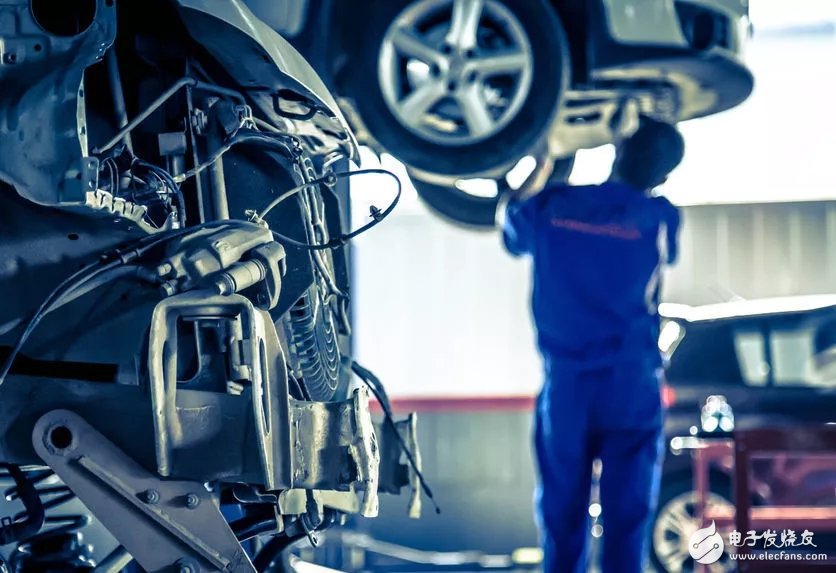In the future competition of electric vehicles, the value of the "investor" of local governments will increase. On May 25, a "Regulations on Automobile Industry Investment Management (Draft for Comment)" from the Development and Reform Commission was exposed. This regulation is expected to be implemented in the second half of this year, replacing the "Auto Industry Development Policy" promulgated 14 years ago and becoming an automobile New entry barriers for manufacturing. The most concerned is of course the qualifications of pure electric vehicle startups (new fuel vehicle projects are almost banned). In July 2016, the National Development and Reform Commission suspended the approval of new energy vehicle manufacturing companies because the 15 companies that had previously obtained qualifications were mixed, and some companies did not have the ability to develop, manufacture and produce electric vehicles on their own. However, several electric vehicle startups that have received a large amount of financing and are about to mass produce their products do not have their own production qualifications, such as Weilai, Byton, Chehejia and so on. The new regulations released this time are a major benefit to these startups. First of all, this means that approval is about to restart; second, according to the content of the new regulations, the approval of electric vehicle manufacturing projects will be delegated to the provincial government instead of being decided by the central government as before. Although the regulations issued this time put forward many new restrictions, for example, only provinces with developed supply chains can build new projects, must have the production and research and development capabilities of core components such as power batteries, and have an annual output of more than 100,000 vehicles. The energy density of the battery, the number of cycles, and the recovery plan are all required. But these thresholds are not excessive, and they won't really block many companies. It's even better to compare the standards of several leading startups. These restrictive measures are not that important compared to the "decentralization of approval authority." If implemented, it means that these electric vehicle startups have basically obtained tickets to enter this huge market. In all markets that require approval to enter, the specific access regulations are often not easy to change at will. The most common way for the government to increase the degree of openness is to delegate the power of approval. For projects with centralized approval rights, the biggest resistance lies not in rules and regulations, but in the dredging, waiting, feedback time, and uncertainty of conveying requirements to a single office. Approval by the local government not only means that the time is greatly shortened, but also has more room for communication. Specific to the electric vehicle manufacturing industry, this benefit is even greater, because local governments are often one of the biggest supporters of these startups. In addition to the companies themselves, the governments where their headquarters (and self-built production bases) are located are the ones who most hope that they will be eligible for market access. To some extent, these local governments can be regarded as invisible investors for startups. An interesting phenomenon is that in the locations where the self-built factories selected by the fastest-growing startup companies are located, there are basically no particularly large automobile companies. In addition to Weilai in Shanghai, Byton is in Nanjing, Weimar is in Wenzhou, and Xiaopeng is in Zhaoqing. The common feature of these cities is that they are in the city clusters with developed automobile industry chains (the Pearl River Delta and the Yangtze River Delta) and have more auto parts companies (which makes them less than 600 kilometers away from most suppliers. The efficiency of the factory is very important), there may be a vehicle factory (such as Nanjing), but there is no local vehicle company. These cities are also more eager than other places to have their own car company. The relevant person in charge in Wenzhou once referred to the introduction of Weimar as "fulfilling the 30-year automobile dream of Wenzhou", and Zhaoqing also regarded the production base of Xiaopeng Motors as "Project No. 1". Start-up companies often receive rare support for this. Most of their production bases are planned to exceed 500 acres, and some are close to 1,000 acres. Although there is no public confirmation, the local government allows them not to rush to pay for the land. The founders of Weimar and Byton both said in interviews that due to the support of the local government, although they built their own factories, they did not have to spend a large sum of money on land purchases, which greatly reduced the initial capital. pressure. With so much investment, these cities naturally hope that these companies can really sell 100,000 or more cars every year as planned, and then attract more companies from the upstream of the industry chain to settle in. Therefore, they will actively promote these companies to obtain qualifications. When the trial power is delegated to the provincial level, these cities will have greater opportunities. Naturally, the different resources provided by the city will also become an important part of the competition for electric vehicle startups. After the approval is officially opened, helping companies to obtain qualifications as soon as possible is of course the top priority, and saving money for them is also part of the question. But next, what is more important is what specific help can be provided to local companies. Some seemingly marginal resources often limit the company's efficiency. For example, the surrounding facilities of the park where the production base is located, the Oujiangkou of Wenzhou where Weimar is located, although it is a new city that is mainly developed by the local area, the surrounding infrastructure facilities are lacking and the transportation to the city is inconvenient. These electric vehicle start-up companies all hope that core talents will gradually gather near the production base, which to a large extent will determine their long-term competitiveness, and the details of the city will also become the key to attracting and retaining people. In addition, although these cities have good auto industry layouts, there are still gaps between them. For example, in terms of electric drive systems, the Yangtze River Delta is better than the Pearl River Delta. Within the Yangtze River Delta, Nanjing may have more accumulation. Wenzhou is closer to core suppliers such as CATL. All of these will become a comparison between the pros and cons of electric vehicle cities. If the city where they are located is regarded as investors, their relationship with startups will be closer than that of ordinary investors, and they need to continue to help startups. This sounds simple, but for a government that values ​​performance, It is not easy. Finally, to make a digression, for these electric vehicle cities, the choice, or what company to strive for, is also an interesting comparison. The local government will also choose between different companies and decide how much attention should be given to it. To a certain extent, this can show an investor's perspective. Don’t forget Huzhou Deqing, which gave LeTV an industrial park of up to 2,000 acres. Although the sale of this land will not lose too much due to the collapse of LeTV, it wants to introduce a real potential electric vehicle company, and I'm afraid it will take a long time for the industry chain behind it. Effect And Laser Light
Laser Light include 1w,2w,3w,5w,8w,10w and so on....
10W RGB Laser Projector Stage Animation Light 40Kpps ILDA Small Beam Full Color
Description:
1) suitable,high brightness
Our company have 13 years experience of LED Display and Stage Lights , our company mainly produce Indoor Rental LED Display, Outdoor Rental LED Display, Transparent LED Display,Indoor Fixed Indoor LED Display, Outdoor Fixed LED Display, Poster LED Display , Dance LED Display ... In additional, we also produce stage lights, such as beam lights Series, moving head lights Series, LED Par Light Series and son on..
Please contact Grace If you need to purchase, we will provide best price and good quality products to u!
Product Specifications:
Effect And Laser Series,Laser Light,Disco Laser Light,Sky Laser Light Guangzhou Chengwen Photoelectric Technology co.,ltd , https://www.cwstagelight.com

2) first-rate,hihg quality(some import parts), attractive and reasonable price
3) fast shipping(as your requirements), good service(1 year and 3 years free repair)
Product Description
RGB Full Color Laser Light
Output Power
1W/3W/5W/8W/10W/15W/20W/30W/50W
Laser type
Diode-Pumped Solid State Laser
Laser Source
Changchun
Color
RGB
Wavelength
532nm 635nm 447nm
Modulation
Analogue Modulation
Beam Divergence
< 1mrad
Scan System
EMS 4000(45Kpps)
Scan Angle
±28°
Control Mode
Pangolin LD2000
Cooling
Air Cooling
Ambient Temperature
10-35 ℃
Dimension
470*345*330 mm
Weight
15KG
Voltage/Frequency
AC220V / 50Hz